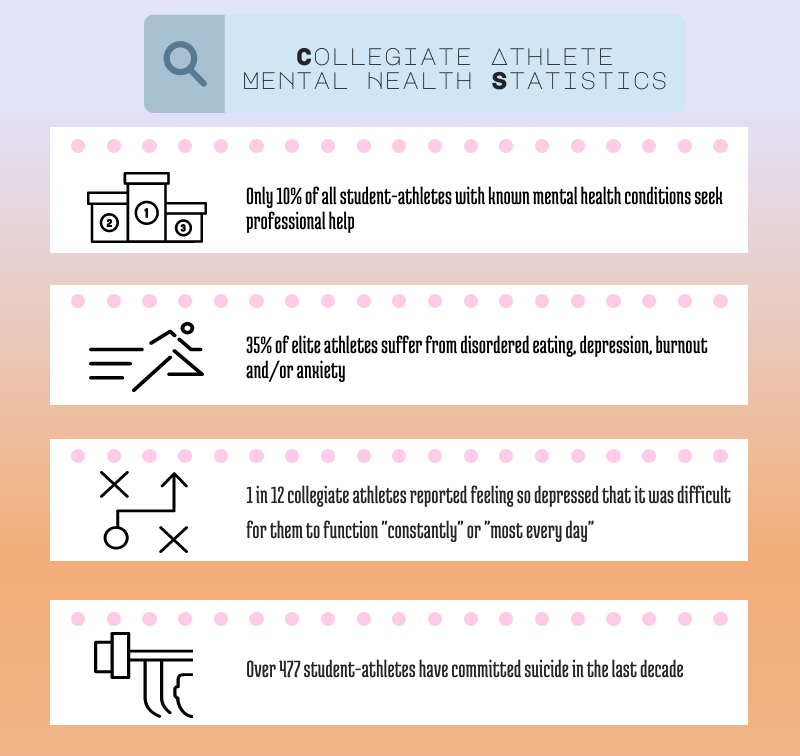James Madison University’s softball catcher, Lauren Bernett, took her own life on April 26 at the age of 20. Though the cause is unknown, it’s important to take a deeper look into student-athlete mental health.
Bernett’s death
On that Tuesday reports hit that JMU softball catcher Lauren Bernett passed away. Rockingham County Sheriff, Bryan Hutcheson, rules it a suicide, although there is an ongoing investigation. Bernett just came off an amazing three-game sweep against Drexel University’s softball team. She was 7-9 in the series. In her final game, Bernett was 4-4 in the 11-4 win. The final hit of her career in that very game was a home run. Bernett was the Colonial Conference Player of the Week for her banner performance in the series. Not long after these accomplishments, she was gone.
Bernett stood out as a freshman, catching for breakout pitcher Odicci Alexander last year. The Dukes made a historic run in the Women’s College World Series with a 41-4 record on the year. Alexander tweeted “Love you LB,” and “You never really know what someone else is going through,” for her teammate. Not much is known as to why Bernett took her life, but the mental health of student-athletes is under much scrutiny.
Student-athlete mental health
Alexander’s tweet does ring true; you do never know what someone else is going through. Bernett isn’t the only Division I athlete to take their life recently. Stanford Womens’ Soccer goalie Katie Meyer took her own life in March. University of Wisconsin’s track and field star Sarah Shulze took hers in April. Unfortunately, Bernett isn’t going to be the last student-athlete to take their life due to stress with academics and athletics.
To combat this, coaches are taking steps to better the mental health of their athletes. Oklahoma University hosted a webinar on “Coaches + Mental Health: Creating Mentally Well Spaces in College Athletics.” Its goal was to explain to coaches the importance of their athletes’ mental health. The topic poses questions for coaches such as, “What could I do? Are they getting help?” But more importantly, informing coaches lets athletes know they aren’t alone in their struggles-they have a place to go. Oklahoma State University softball coach, Kenny Gajewski, has a 24/7 open-door policy with his athletes. His phone is never off, and he’s proactive in interacting with his athletes and communicating with them.
However, it’s necessary to stress that self-care for individual athletes is important too. OU’s second baseman, Tiare Jennings, goes for long drives with the windows down. OSU’s softball ace, Kelly Maxwell, tries to find joy in the smaller little things. Whether that be listening to music, talking with friends, or just taking a shower, finding things that boost your mood is so important.
Only ten percent of athletes with mental health conditions seek help. This scary statistic shows that athletes need to know that they always have a place to go when in need. The mental health of these young people is so important. It’s imperative that lives like Bernett and Shulze aren’t continued to be lost in the future.













